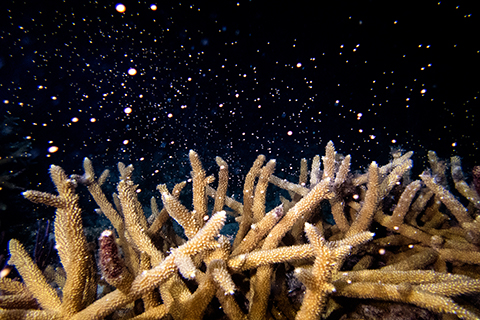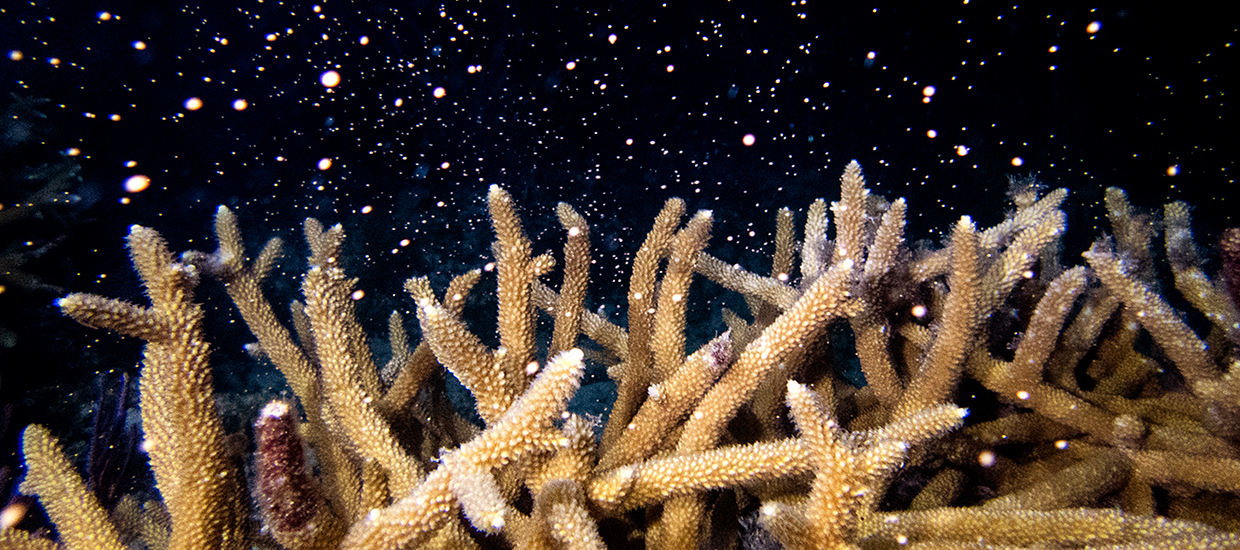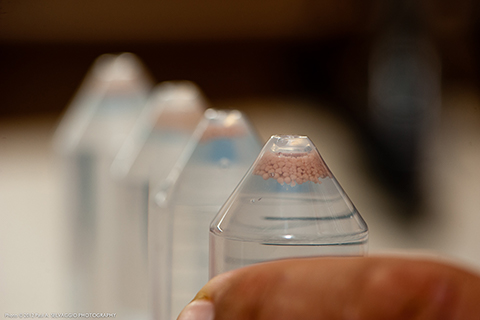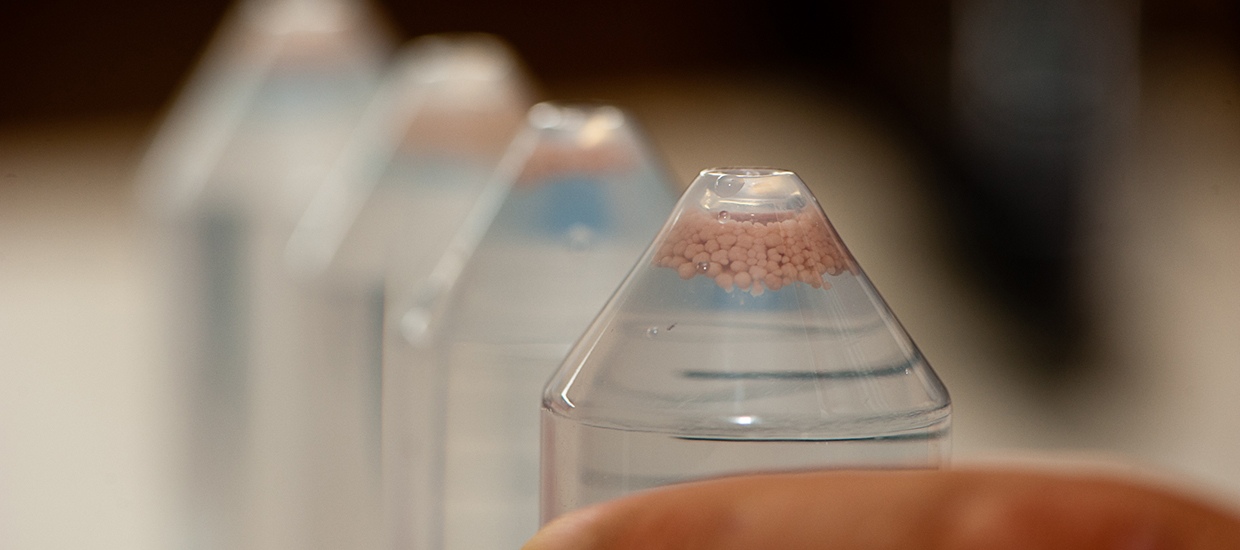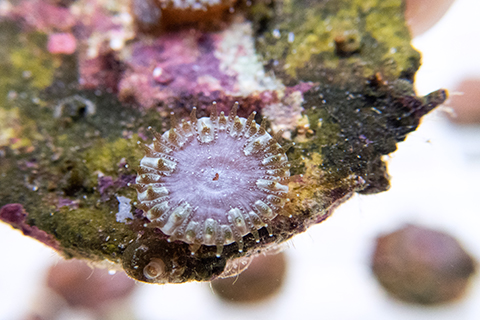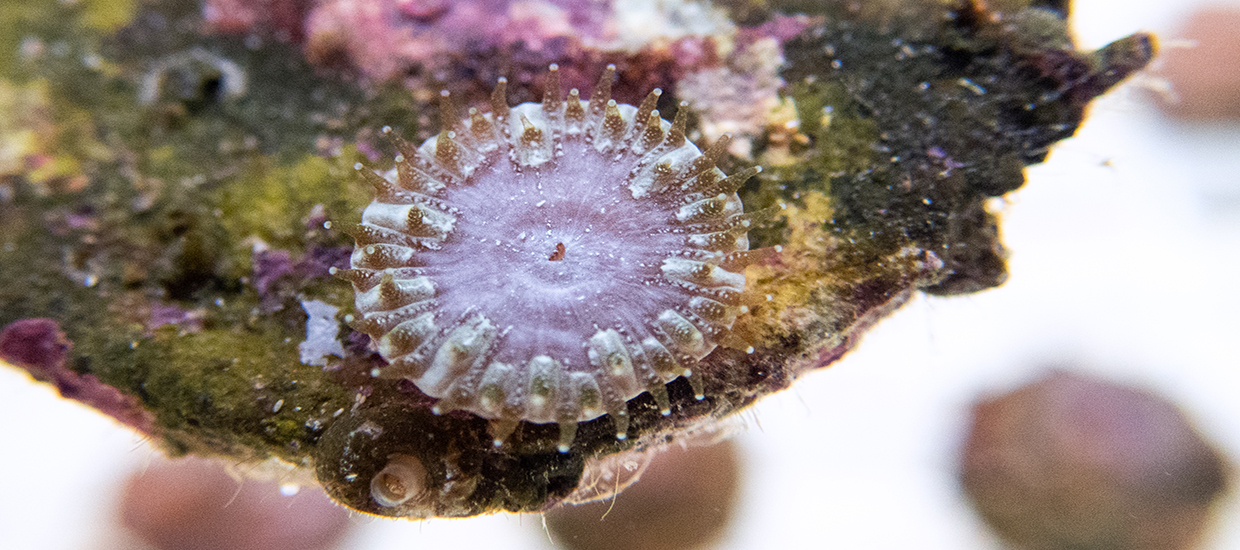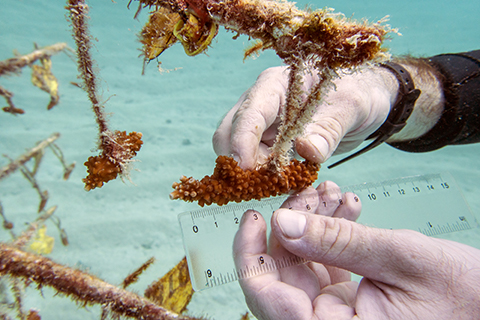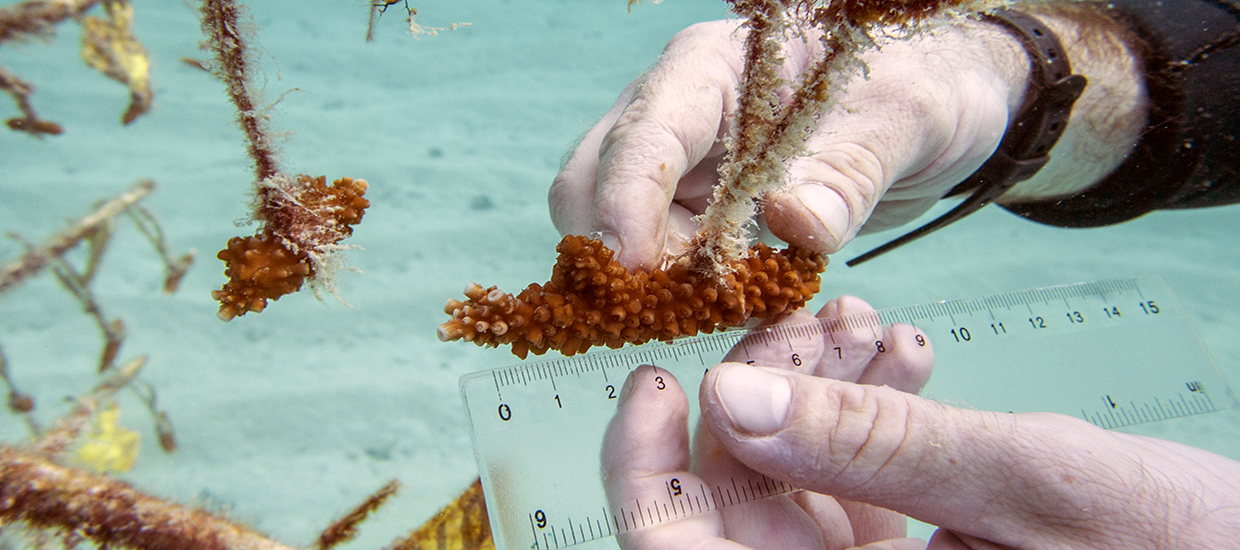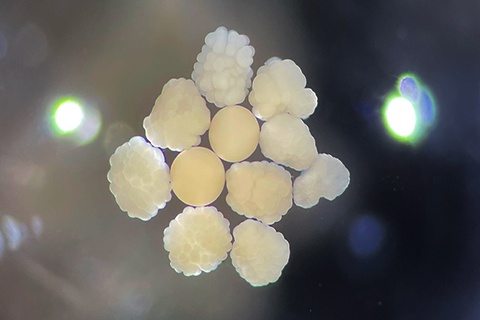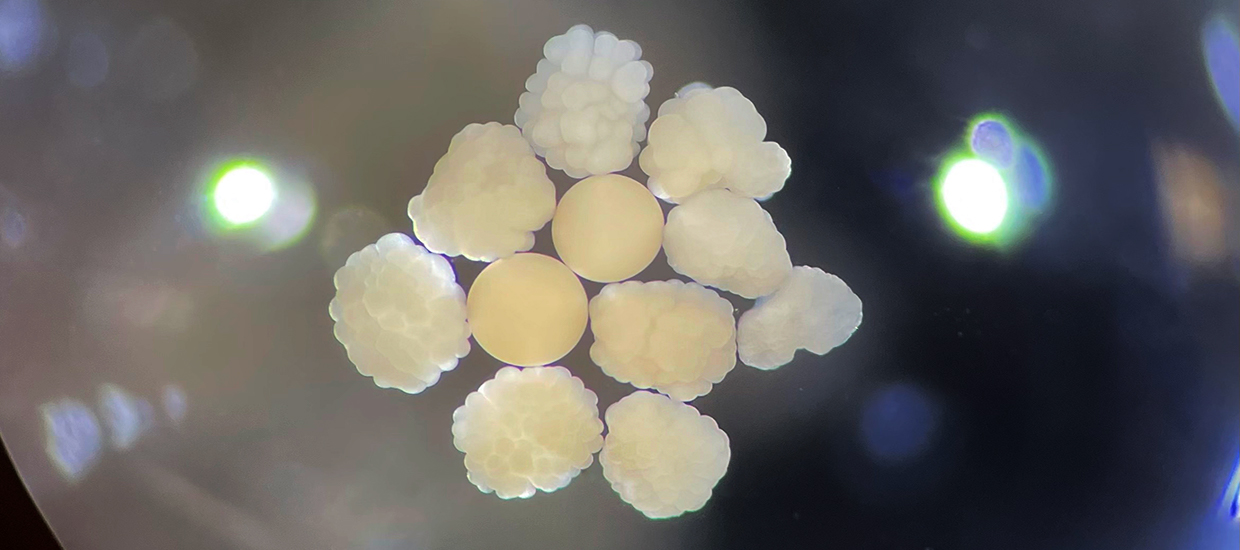Managed breeding
Selectively breed new generations of resilient corals using advanced phenotyping and genomic approaches:
- Source parent colonies from a variety of locations and environmental conditions to maximize diversity and resilience of offspring
- Utilize a new tool for rapid, standardized stress testing of corals (CBASS) to rapidly identify parents with desirable traits for breeding efforts (i.e., increased thermal tolerance, growth, and/or disease resistance)
- Employ ex situ spawning technology to reliably induce reproduction in targeted parent colonies and minimize risks associated with wild spawning
- Utilize novel sperm cryopreservation techniques to selectively breed parents that are far apart in space and time to produce offspring with desirable traits (i.e., increased thermal tolerance, growth, and/or disease resistance)
Leads: University of Miami (Andrew Baker), The Florida Aquarium (Keri O'Neil), HIFMB (Iliana Baums)
Probiotics
Explore the use of probiotics to enhance the heat tolerance and disease resistance of corals (including both adults and newly settled recruits):
- Isolate bacterial strains from a variety of coral species and screen them for probiotic activity
- Apply strains that show positive laboratory results in nursery-based corals, focusing on increased disease resistance and thermotolerance as metrics
- Monitor effects of probiotic treatment on growth and survivorship over time to test the application frequency needed to maintain positive effects
Leads: Smithsonian Marine Station (Jennifer Sneed, Valerie Paul)
Algal symbiont manipulation
Seed early life stage of corals with resilient algal symbionts:
- Use the recruit pipeline from our managed breeding activities to seed juvenile corals with thermotolerant algal symbionts in the genus Durusdinium
- Optimize grow-out conditions that ensure these algal communities remain stable during juvenile development
- Test whether algal symbiont manipulations impact recruit heat tolerance and/or disease resistance
Leads: University of Miami (Andrew Baker)
Hybrid and chimeric colonies
Increase coral resilience by using hybrid species (Acropora) and mergers of multiple genotypes:
- Produce staghorn-elkhorn coral hybrids to leverage their high resilience and rapid growth to maximize wave attentuation benefits
- Generate coral recruits growing together into "chimeric" colonies consisting of multiple distinct genets, to test whether these have increased growth or heat tolerance relative to single-genet recruits
Leads: The Florida Aquarium (Keri O'Neil), HIFMB (Iliana Baums)
Epigenetic modification
Promote long-lived epigenomic modifications by growing corals in challenging conditions during early life stages:
- Test whether rearing early-stage Acropora recruits under different environmental conditions (both in situ and ex situ) improve their eventual survivorship and performance at the restoration site
- Identify epigenomic modifications under different conditions that can be used as biomarkers
- Quantify epigenetic changes using the Methyl-Sensitive Amplification Polymorphism (MSAP) method to provide informative results rapidly without requiring genomic information
Leads: Florida International University (Jose Eirin-Lopez)



